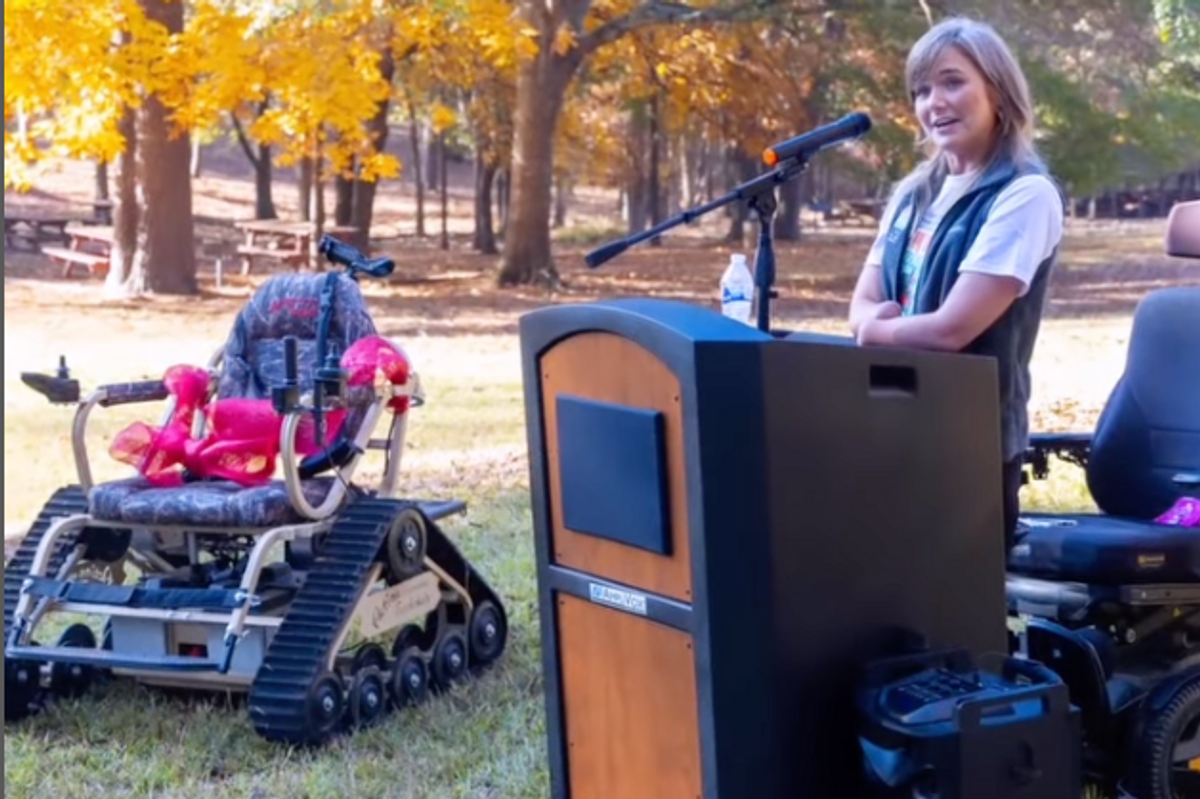
We all know that Mother Nature is often the best medicine to relieve stress, improve fitness and increase happiness. However, these benefits aren’t always accessible to everyone. Hiking trails are next to impossible for many with physical disabilities, especially wheelchair users.
That’s why the Aimee Copeland Foundation, an organization created by a master social worker and quadruple amputee to help build a more inclusive community, and the Georgia Department of Natural Resources have collaborated to provide an innovative way to make outdoor recreation more obtainable—through a fleet of all-terrain, free-to-use wheelchairs scattered across 11 of Georgia’s state parks and historic sites.
Each chair is equipped to hike, hunt, fish and easily travel through difficult terrains like mud, water, sand and snow. And since the devices were designed with safety in mind, certification and a “buddy” are required to qualify for use. That said, visitors who qualify include those with cerebral palsy, muscular dystrophy, spinal cord injuries and lower limb amputations.
“Our mission is to provide outdoor opportunities for every Georgia citizen and visitor,” said Georgia State Parks & Historic Sites Director Jeff Cown in a press release. “I am proud to partner with the Aimee Copeland Foundation to offer access to visitors with mobility or physical disabilities.”
As Cory Lee, 32-year-old travel blogger and wheelchair user, notes in an interview with The Washington Post, this could be life-changing for many people. Lee has covered accessible adventures throughout the world, and yet has never been able to properly explore his home state of Georgia, as his regular wheelchair couldn’t handle the trails.
Lee had previously traveled to other states that provided terrain-ready wheelchairs, like Muskegon State Park in Michigan. Traversing the three-mile shoreline in his rented all-terrain wheelchair “allowed me to have so much independence on the sand,” he said. Now, he and others will be able to have that kind of independence in even more places throughout the country. In addition to Michigan and Georgia, South Dakota, Colorado and Minnesota have similar programs.
Independence and mobility have been noted to be the most vital factors in determining quality of life for those with disabilities. Despite the stigmas surrounding them, wheelchairs are valuable tools for providing this kind of autonomy. It’s lovely that more advancements are being made to improve a device that already helps so many fully live their lives. Hopefully even more take on this idea.
